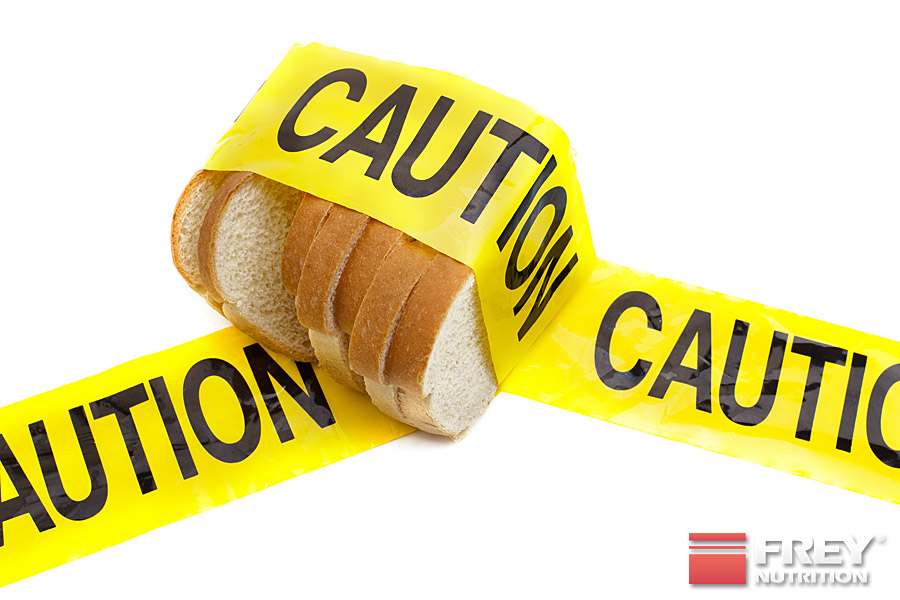"FAT DOESN'T MAKE YOU FAT!"
Times are changing! In the past, fat was demonized as a fattening nutrient and was always avoided at all costs. "Fat makes you fat and must therefore be avoided!" was the motto from days gone by, which was meticulously adhered to as the basis of every diet.
Today, however, we know that this is anything but the case and that a sufficient intake of unsaturated fatty acids plays an important role in successful fat loss. Rather than reducing fat intake, the combination of saturated fats with short-chain carbohydrates should be avoided. Short-chain carbohydrates generate a strong insulin response, which significantly increases the risk of storing dietary fat in the form of fat.
IT'S NOT FAT THAT MAKES YOU FAT, IT'S THE COMBINATION OF FAT WITH CARBOHYDRATES!
In short: "It's not fat that makes you fat, but the combination of fat and carbohydrates!" The increase in blood sugar from a carbohydrate-rich meal, which is only desired at certain times, causes the insulin level to rise.
If fat is consumed at the same time, insulin's main task is to open the gates to the cells, but in this case not to the muscle cells, but to the fat cells. The carbohydrates and the associated insulin release pave the way for fat storage. The delicious piece of cake after a sumptuous carbohydrate-rich meal certainly tastes delicious and is extremely tempting, but it will definitely lead to fat gain and should therefore be avoided.
THE RIGHT FATS ARE CRUCIAL
The Atkins diet teaches us otherwise in this respect, because by consuming a large amount of fat while avoiding carbohydrates, fat storage is hardly possible.
On the contrary, the increased intake of polyunsaturated dietary fats stimulates fat mobilization. Since the body is supplied with sufficient fats, it sees no reason to store them as reserves in the form of depot fat for bad times and switches from "storage" to "use up".
"ONLY THROUGH A SUFFICIENT FAT SUPPLY DOES THE BODY SWITCH FROM "STORAGE" TO "CONSUME"." (QUOTE: A. FREY)
Although the Atkins diet is not considered the ideal diet due to its extreme views and restrictive guidelines, the right conclusions can still be drawn from it. A diet should not be about cutting back on dietary fat, but rather about using the right fats or oils and reducing the carbohydrate content of food. Furthermore, the simultaneous consumption of short-chain carbohydrates, such as sugar, with fats should be avoided.
THE OPTIMAL FAT INTAKE
Fat intake should be kept consistently high and should be between 50 and 120 g per day, depending on body weight. The guideline for a sensible fat intake is around 0.8 to 1 g per kilogram of body weight per day. This daily intake provides the body with sufficient energy during diet phases, while also improving fat metabolism and enabling the absorption of fat-soluble vitamins. The decisive factor in the intake of fats is not so much the quantity but rather their quality. Polyunsaturated fats from vegetable oils such as safflower, rapeseed and linseed oil provide particularly valuable fatty acids that can have a positive effect on fat metabolism.
OMEGA-3 CAPSULES CONTAIN THE FATTY ACIDS EPA AND DHA, WHICH ARE IMPORTANT FOR METABOLISM.
However, there is hardly any fatty acid that is as effective and has numerous valuable properties for the organism as the OMEGA-3 FATTY ACIDS . These therefore represent the ultimate in effective fatty acids.
Since omega-3 fatty acids have some very interesting advantages for dieting phases, they are particularly frequently used during times of targeted fat reduction. Scientific studies have shown that fatty acids from the omega-3 group increase fat loss (see study: FISH OILS ACCELERATE FAT BREAKDOWN . To achieve these positive effects, sufficient amounts of EPA (= eicosapentaenoic acid) and DHA (= docosahexaenoic acid) are required, which are found primarily in fatty fish species. However, if fatty fish is not everyone's cup of tea and is only rarely on the menu, fish oil or omega-3 capsules can provide sufficient high-quality omega-3 fats to take advantage of the benefits.
Depending on body weight and the goal set, 6 to 9 g of fish oil per day (= equivalent to 12 to 18 Omega-3 capsules) ensure a sufficient supply of OMEGA-3 FATTY ACIDS .
THE OPTIMAL CARBOHYDRATE DISTRIBUTION
Carbohydrates should only be consumed specifically to replenish depleted glycogen stores, which also boost the metabolism. A "feeding day" with complex carbohydrates is one of the basics of COMMUTER DIET and highly recommended. In general, the amount of carbohydrates consumed in a build-up phase can be reduced by half for diet phases.
The amount of carbohydrates consumed should be gradually reduced depending on the progress of the diet. At the same time, aerobic units should be increased, which also accelerates fat loss. However, no less than 60 g of carbohydrates should be consumed per day, as this is the minimum amount required for our brain to function properly. This amount should be divided into 2 equal portions, with one portion consumed in the morning for breakfast and the other in the form of short-chain carbohydrates directly after training. For optimal fat metabolism, both in the build-up phase and in the diet phase, the following always applies: Fat intake should be around 0.8 to 1 g per kg of body weight!













